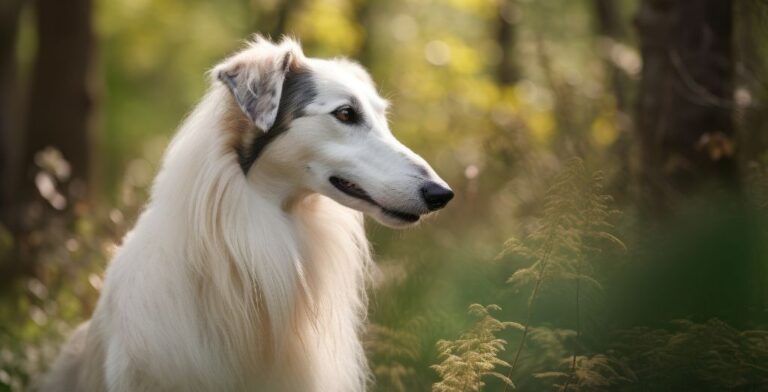Shetland Sheepdog: The Intelligent and Loyal Herding Companion
The Shetland Sheepdog, often called the “Sheltie,” is a small but highly intelligent herding breed known for its loyalty and agility. Originally from Scotland’s Shetland Islands, these dogs have gained popularity worldwide due to their affectionate nature and trainability. Whether you’re looking for a devoted companion or a skilled competitor in canine sports, the Sheltie is an excellent choice.
History and Origin
Shetland Sheepdogs trace their roots back to the Shetland Islands, where they were bred to herd sheep in harsh conditions. These small, agile dogs were developed from a mix of Collies and other herding breeds, resulting in a compact and intelligent herding dog. Officially recognized by in 1911, the Sheltie has since become a beloved family pet and show dog.
Physical Characteristics
Shelties are small to medium-sized dogs, usually weighing between 15 and 25 pounds and standing approximately 13 to 16 inches tall. They have a distinctive double coat that comes in various colors, including sable, blue merle, and black with white or tan markings. Their long, thick fur requires regular grooming to maintain its beauty and prevent matting.
Temperament and Personality
One of the standout traits of Shetland Sheepdogs is their intelligence. They are ranked among the most intelligent dog breeds, making them easy to train and eager to learn new commands. Shelties are also highly loyal and affectionate with their families. However, they can be reserved around strangers, making early socialization essential.
Training and Obedience
Training a Sheltie is relatively easy due to their intelligence and eagerness to please. They excel in obedience training and agility competitions, often ranking among the top breeds in these events. Positive reinforcement techniques, such as treats and praise, work best for training Shelties. Consistent training from an early age helps curb their tendency to bark excessively or become overly shy.
Exercise and Activity Needs
Shelties are active dogs that require regular exercise to stay healthy and happy. Daily walks, playtime, and interactive games are essential for keeping them both physically active and mentally engaged. They also thrive in canine sports like agility, obedience trials, and herding competitions. A bored Sheltie may develop destructive behaviors, so engaging activities are crucial.
Grooming and Care
Due to their long, thick coats, Shelties require frequent grooming. Brushing them at least two to three times a week helps prevent tangles and reduces shedding. During shedding seasons, daily brushing is recommended. Regular ear cleaning, nail trimming, and dental care should also be part of their grooming routine to keep them in optimal health.
Health and Lifespan
Shetland Sheepdogs are generally healthy but can be prone to certain genetic conditions, including:
- Hip Dysplasia: A common joint issue in many dog breeds.
- Collie Eye Anomaly (CEA): A hereditary eye condition affecting vision.
- Von Willebrand’s Disease: A blood clotting disorder.
- Hypothyroidism: A hormonal imbalance affecting metabolism.
With proper care, Shelties typically live between 12 to 15 years. Regular veterinary check-ups, a balanced diet, and an active lifestyle contribute to their longevity.
Shetland Sheepdog as a Family Pet
Shelties make excellent family pets due to their affectionate and gentle nature. They get along well with children and other pets, provided they are socialized early. However, their herding instincts may lead them to nip at running children, so supervision is necessary. Their loyalty and intelligence make them fantastic companions for individuals and families alike.
Adoption and Responsible Breeding
If you’re considering adding a Shetland Sheepdog to your family, consider adopting from a rescue organization or reputable breeder. Responsible breeders conduct health screenings to ensure their dogs are free from genetic conditions. Organizations like the American Shetland Sheepdog Association provide valuable resources on adopting and caring for Shelties.
Conclusion
The Shetland Sheepdog is an extraordinary breed known for its intelligence, loyalty, and agility. Whether as a devoted family pet or a competitive sports dog, Shelties excel in various roles. With proper training, exercise, and grooming, a Sheltie can be a loving and long-term companion.
FAQs
1. Are Shetland Sheepdogs good for first-time dog owners?
Yes, Shelties are intelligent and trainable, making them a great choice for first-time owners willing to invest time in training and grooming.
2. Do Shelties bark a lot?
Shelties are known for being vocal and may bark frequently, especially if they are bored or left alone for long periods. Proper training can help manage excessive barking.
3. How much exercise does a Sheltie need?
Shelties need at least 60 minutes of daily exercise, including walks, playtime, and mental stimulation activities.
4. Are Shelties hypoallergenic?
No, Shetland Sheepdogs are not hypoallergenic. They have a thick double coat that sheds regularly.
5. Can Shelties live in apartments?
Yes, but they require sufficient exercise and mental stimulation. They thrive in environments where they receive ample attention and activity.










